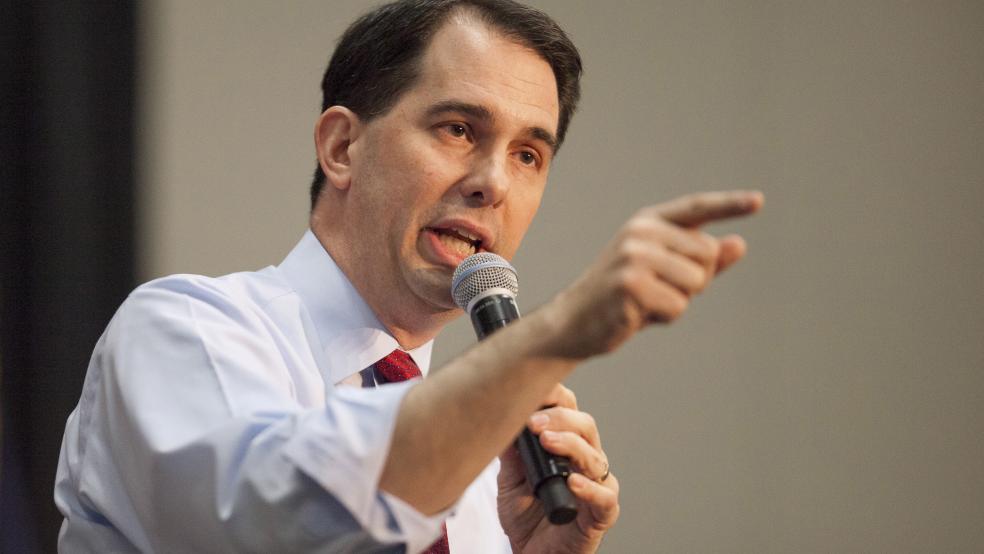NATIONAL HARBOR, Md. (Reuters) - Potential Republican presidential candidate Scott Walker told grassroots conservatives on Thursday that his battle with labor unions as Wisconsin's governor had given him the mettle needed to take on militant groups like Islamic State.
""We need a leader who will stand up and say we will take the fight to them and not wait until they take the fight to American soil," Walker told the Conservative Political Action Conference (CPAC)."If I can take on 100,000 protesters, I can do the same in the rest of the world," he added.Democrats immediately seized on the comment to suggest Walker was comparing Wisconsin protesters to Islamic militants."If Scott Walker thinks that it's appropriate to compare working people speaking up for their rights to brutal terrorists, then he is even less qualified to be president than I thought," said Democratic National Committee spokesman Mo Elleithee.Walker spokeswoman Kirsten Kukowski said Walker was in no way comparing any American citizen to Islamic State militants."What the governor was saying was when faced with adversity he chooses strength and leadership. Those are the qualities we need to fix the leadership void this White House has created," she said.The Badger State's 47-year-old governor has emerged as an early favorite in the battle to win the Republican nomination in the November 2016 presidential election. He was among more than a dozen potential candidates due to address activists at CPAC in Maryland near Washington on Thursday and Friday.Like many other potential candidates, Walker has argued that Democratic President Barack Obama has not been aggressive enough in the U.S.-led fight against Islamic State and other extremist groups in the Middle East. Walker triggered weeks of bitter protests shortly after he took office in 2011 when he pushed legislation that stripped collective-bargaining rights for many public workers and cut their benefits. He emerged as a national figure after surviving a recall attempt the following year and was re-elected in the politically competitive state last November.Walker is expected to sign a bill currently making its way through the Republican-controlled state legislature that would make Wisconsin a "right to work" state, which would further erode labor unions' strength in the industrial state by allowing workers to opt out of paying union dues. (Additional reporting by Emily Flitter and Steve Holland; Editing by Jonathan Oatis and Ken Wills)White House hopeful Walker: Union battles prepared him to take on Islamic State

JASON MICZEK



